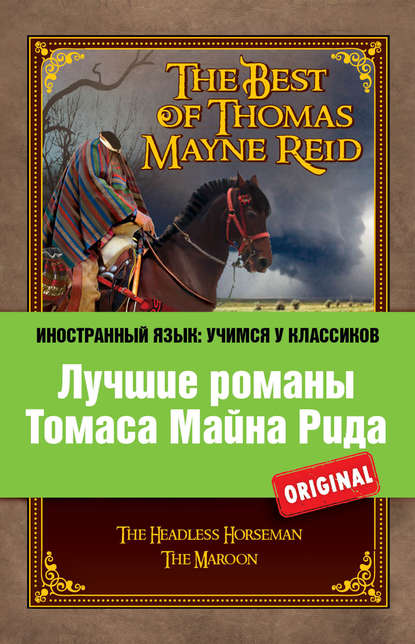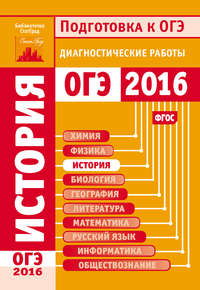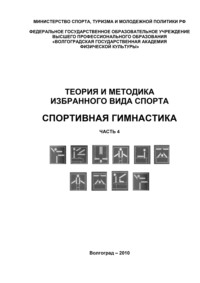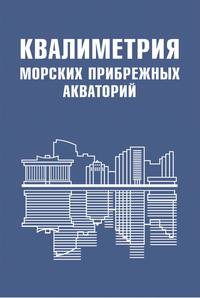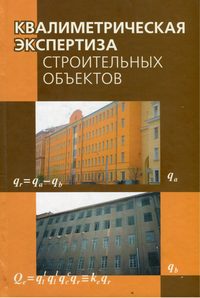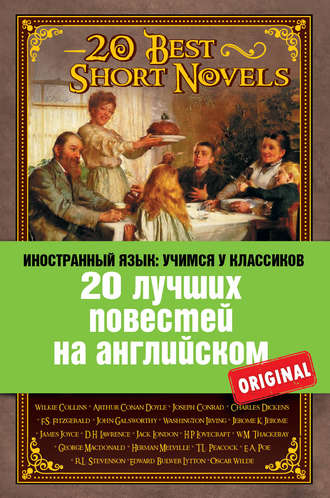
Полная версия
20 лучших повестей на английском / 20 Best Short Novels
As he spoke, his nimble fingers were flying here, there, and everywhere, feeling, pressing, unbuttoning, examining, while his eyes wore the same far-away expression which I have already remarked upon. So swiftly was the examination made, that one would hardly have guessed the minuteness with which it was conducted. Finally, he sniffed the dead man’s lips, and then glanced at the soles of his patent leather boots.
‘He has not been moved at all?’ he asked.
‘No more than was necessary for the purposes of our examination.’
‘You can take him to the mortuary now,’ he said. ‘There is nothing more to be learned.’
Gregson had a stretcher and four men at hand. At his call they entered the room, and the stranger was lifted and carried out. As they raised him, a ring tinkled down and rolled across the floor. Lestrade grabbed it up and stared at it with mystified eyes.
‘There’s been a woman here,’ he cried. ‘It’s a woman’s wedding-ring.’
He held it out as he spoke, upon the palm of his hand. We all gathered round him and gazed at it. There could be no doubt that that circlet of plain gold had once adorned the finger of a bride.
‘This complicates matters,’ said Gregson. ‘Heaven knows, they were complicated enough before.’
‘You’re sure it doesn’t simplify them?’ observed Holmes. ‘There’s nothing to be learned by staring at it. What did you find in his pockets?’
‘We have it all here,’ said Gregson, pointing to a litter of objects upon one of the bottom steps of the stairs. ‘A gold watch, No. 97163, by Barraud, of London. Gold Albert chain, very heavy and solid. Gold ring, with masonic[83] device. Gold pin – bull-dog’s head, with rubies as eyes. Russian leather card-case, with cards of Enoch J. Drebber of Cleveland, corresponding with the E. J. D. upon the linen. No purse, but loose money to the extent of seven pounds thirteen. Pocket edition of Boccaccio[84]’s Decameron[85], with name of Joseph Stangerson upon the fly-leaf. Two letters – one addressed to E. J. Drebber and one to Joseph Stangerson.’
‘At what address?’
‘American Exchange, Strand[86] – to be left till called for. They are both from the Guion Steamship Company, and refer to the sailing of their boats from Liverpool. It is clear that this unfortunate man was about to return to New York.’
‘Have you made any inquiries as to this man Stangerson?’
‘I did it at once, sir,’ said Gregson. ‘I have had advertisements sent to all the newspapers, and one of my men has gone to the American Exchange, but he has not returned yet.’
‘Have you sent to Cleveland?’
‘We telegraphed this morning.’
‘How did you word your inquiries?’
‘We simply detailed the circumstances, and said that we should be glad of any information which could help us.’
‘You did not ask for particulars on any point which appeared to you to be crucial?’
‘I asked about Stangerson.’
‘Nothing else? Is there no circumstance on which this whole case appears to hinge? Will you not telegraph again?’
‘I have said all I have to say,’ said Gregson, in an offended voice.
Sherlock Holmes chuckled to himself, and appeared to be about to make some remark, when Lestrade, who had been in the front room while we were holding this conversation in the hall, reappeared upon the scene, rubbing his hands in a pompous and self-satisfied manner.
‘Mr. Gregson,’ he said, ‘I have just made a discovery of the highest importance, and one which would have been overlooked had I not made a careful examination of the walls.’
The little man’s eyes sparkled as he spoke, and he was evidently in a state of suppressed exultation at having scored a point against his colleague.
‘Come here,’ he said, bustling back into the room, the atmosphere of which felt clearer since the removal of its ghastly inmate.
‘Now stand there!’
He struck a match on his boot and held it up against the wall.
‘Look at that!’ he said, triumphantly.
I have remarked that the paper had fallen away in parts. In this particular corner of the room a large piece had peeled off, leaving a yellow square of coarse plastering. Across this bare space there was scrawled in blood-red letters a single word —
RACHE
‘What do you think of that?’ cried the detective, with the air of a showman exhibiting his show. ‘This was overlooked because it was in the darkest corner of the room, and no one thought of looking there. The murderer has written it with his or her own blood. See this smear where it has trickled down the wall! That disposes of the idea of suicide anyhow. Why was that corner chosen to write it on? I will tell you. See that candle on the mantelpiece. It was lit at the time, and if it was lit this corner would be the brightest instead of the darkest portion of the wall.’
‘And what does it mean now that youhave found it?’ asked Gregson in a depreciatory voice.
‘Mean? Why, it means that the writer was going to put the female name Rachel, but was disturbed before he or she had time to finish. You mark my words, when this case comes to be cleared up, you will find that a woman named Rachel has something to do with it. It’s all very well for you to laugh, Mr. Sherlock Holmes. You may be very smart and clever, but the old hound is the best, when all is said and done.’
‘I really beg your pardon!’ said my companion, who had ruffled the little man’s temper by bursting into an explosion of laughter. ‘You certainly have the credit of being the first of us to find this out and, as you say, it bears every mark of having been written by the other participant in last night’s mystery. I have not had time to examine this room yet, but with your permission I shall do so now.’
As he spoke he whipped a tape measure and a large round magnifying glass from his pocket. With these two implements he trotted noiselessly about the room, sometimes stopping, occasionally kneeling, and once lying flat upon his face. So engrossed was he with his occupation that he appeared to have forgotten our presence, for he chattered away to himself under his breath the whole time, keeping up a running fire of exclamations, groans, whistles, and little cries suggestive of encouragement and of hope. As I watched him I was irresistibly reminded of a pure-blooded, well-trained foxhound as it dashes backwards and forwards through the covert, whining in its eagerness, until it comes across the lost scent. For twenty minutes or more he continued his researches, measuring with the most exact care the distance between marks which were entirely invisible to me, and occasionally applying his tape to the walls in an equally incomprehensible manner. In one place he gathered up very carefully a little pile of grey dust from the floor, and packed it away in an envelope. Finally he examined with his glass the word upon the wall, going over every letter of it with the most minute exactness. This done, he appeared to be satisfied, for he replaced his tape and his glass in his pocket.
‘They say that genius is an infinite capacity for taking pains,’ he remarked with a smile. ‘It’s a very bad definition, but it does apply to detective work.’
Gregson and Lestrade had watched the manoeuvres of their amateur companion with considerable curiosity and some contempt. They evidently failed to appreciate the fact, which I had begun to realize, that Sherlock Holmes’ smallest actions were all directed towards some definite and practical end.
‘What do you think of it, sir?’ they both asked.
‘It would be robbing you of the credit of the case if I was to presume to help you,’ remarked my friend. ‘You are doing so well now that it would be a pity for any one to interfere.’ There was a world of sarcasm in his voice as he spoke. ‘If you will let me know how your investigations go,’ he continued, ‘I shall be happy to give you any help I can. In the meantime I should like to speak to the constable who found the body. Can you give me his name and address?’
Lestrade glanced at his notebook; ‘John Rance,’ he said. ‘He is off duty now. You will find him at 46, Audley Court, Kennington Park Gate.’
Holmes took a note of the address.
‘Come along, Doctor,’ he said ‘we shall go and look him up. I’ll tell you one thing which may help you in the case,’ he continued turning to the two detectives. ‘There has been murder done, and the murderer was a man. He was more than six feet high, was in the prime of life, had small feet for his height, wore coarse, square-toed boots and smoked a Trichinopoly[87] cigar. He came here with his victim in a four-wheeled cab, which was drawn by a horse with three old shoes and one new one on his off fore-leg. In all probability the murderer had a florid face, and the finger-nails of his right hand were remarkably long. These are only a few of the indications, but they may assist you.’
Lestrade and Gregson glanced at each other with an incredulous smile.
‘If this man was murdered, how was it done?’ asked the former.
‘Poison,’ said Sherlock Holmes curtly, and strode off. ‘One other thing, Lestrade,’ he added, turning round at the door: ‘“Rache,” is the German for “revenge”; so don’t lose your time looking for Miss Rachel.’
With which Parthian shot[88] he walked away, leaving the two rivals open-mouthed behind him.
Chapter IV
What John Rance had to tell
It was one o’clock when we left No. 3, Lauriston Gardens. Sherlock Holmes led me to the nearest telegraph office, whence he dispatched a long telegram. He then hailed a cab, and ordered the driver to take us to the address given us by Lestrade.
‘There is nothing like first-hand evidence,’ he remarked; ‘as a matter of fact, my mind is entirely made up upon the case, but still we may as well learn all that is to be learned.’
‘You amaze me, Holmes,’ said I. ‘Surely you are not as sure as you pretend to be of all those particulars which you gave.’
‘There’s no room for a mistake,’ he answered. ‘The very first thing which I observed on arriving there was that a cab had made two ruts with its wheels close to the curb. Now, up to last night, we have had no rain for a week, so that those wheels which left such a deep impression must have been there during the night. There were the marks of the horse’s hoofs, too, the outline of one of which was far more clearly cut than that of the other three, showing that that was a new shoe. Since the cab was there after the rain began, and was not there at any time during the morning – I have Gregson’s word for that – it follows that it must have been there during the night, and, therefore, that it brought those two individuals to the house.’
Конец ознакомительного фрагмента.
Текст предоставлен ООО «Литрес».
Прочитайте эту книгу целиком, купив полную легальную версию на Литрес.
Безопасно оплатить книгу можно банковской картой Visa, MasterCard, Maestro, со счета мобильного телефона, с платежного терминала, в салоне МТС или Связной, через PayPal, WebMoney, Яндекс.Деньги, QIWI Кошелек, бонусными картами или другим удобным Вам способом.
Примечания
1
Oxford Street– one of the main streets in central London, a shopping centre of London
2
pot-boy – a boy who works in a pub
3
phenomena– pl. from phenomenon– an unusual or remarkable thing, event, person, etc.
4
coroner – an official who investigates the cause of death if the circumstances of it seem unnatural
5
the Company – the East India Company formed in 1600 for the development of trade with India and Southeast Asia; later the Company became involved in politics as a British agent in the region
6
bureau – a writing desk with drawers
7
Macaulay– Thomas Bebington Macaulay (1800–1859); an English politician, historian and essayist; he is best known for his ‘History of England’
8
jugglers – persons who perform tricks to amuse people
9
attics– an attic is a space under the roof of the house
10
balusters– construction details supporting a handrail
11
hydrophobia– strong fear of water
12
medium– a person who is able to receive information from the spirits of the dead
13
mesmerizm– a sort of hypnotism; named after Franz Mesmer (1734–1815) who was the first to use hypnotic trance in medical treatment
14
mesmerize = hypnotize
15
mesmerizer = hypnotizer
16
Will-o’-the Wisp– a meteorological effect, a mysterious light seen over marshes due to ignition of methane, produced by the decomposition of plants
17
simulacra– pl. from simulacrum – shadowy likeness that is deceiving
18
phantasm– a phantom
19
phantom– a ghost, or smth. seen in a vision
20
larvae– insects in the first stage of their life cycle
21
Liverpool– a city and port in the historic county of Lancashire in northwestern England
22
Melbourne– an important city and port on the southeastern coast of Australia
23
Walworth– a historic village in Southwark, an inner borough of London; a borough is an incorporated town or district with special privileges.
24
mesmeric– hypnotic
25
rapport = relationship
26
en rapport = in close relationship
27
Paracelsus (1493–15410) – a Swiss doctor and alchemist who was the first to widely use the achievements of chemistry for treating patients
28
eidolon – a ghost or phantom (Greek)
29
Bacon– Francis Bacon (1561–1626), a famous English philosopher, statesman, essayist and speaker
30
Plato (428 BC–348 BC) – an ancient Greek philosopher, founder of the Academy; he was the pupil of Socrates and the teacher of Aristotle.
31
the Almighty = God
32
crotchet– a strange and unreasonable idea
33
hobgoblins– in English and Scottish folklore, small malicious fairies which inhabit houses, mislead travelers, frighten people, spoil things, etc.
34
pentacle– a magic geometrical figure
35
vellum– parchment
36
anathema– a formal declaration of the Church condemning smb. or smth.; a curse
37
Somersetshire – a historic county in the southwest of England
38
Methodist– a member of the Methodist Church which separated from the Church of England in the 18th century and later developed into an autonomous church
39
chaise– a low carriage with two or four wheels
40
Cambridgeshire– a historic county in eastern England
41
brogue– a local way of speaking English; a dialect
42
was dead against smth. = was strongly against smth.
43
Providence– God or some power that intervenes in human lives and affairs of the world
44
the Eesraelites– the Israelites, people of Jewish origin, members of the twelve tribes of Israel; in the 10th century BC, ten tribes established the Kingdom of Israel, and two tribes the Kingdom of Judah
45
the West-end– the fashionable part of London known for its palaces, mansions, parks and shops
46
laudanum– a sedative made from opium
47
delusion– a false opinion that may be a symptom of madness
48
Metz– a city in northeastern France; it was founded by a Gallic tribe and later fortified by the Romans
49
the River Moselle– a river in northeastern France and western Germany, a tributary of the Rhine River
50
Moselle wine– famous wine produced in Germany from the vineyards on the banks of the Moselle River
51
lunatic asylum– a mental hospital for the care and treatment of mental patients
52
delirium– mental excitement during illness (usually fever) accompanied by senseless, incoherent speech
53
pâté = paste
54
demon– a wicked or cruel spirit or supernatural creature
55
Bombay – now Mumbai, a large city in southwestern India, India’s commercial, financial and religious centre, the main port on the Arabic Sea
56
Candahar – Kandahar, a city in south-central Afghanistan on the way to India; the city has a long history of wars and conquests
57
the Berkshires – soldiers from the county of Berkshire
58
Ghazis – hist. warriors for the Islamic faith
59
Peshawur – a city and capital of province in northern Pakistan
60
Portsmouth – a city on the English Channel, in the historic county of Hampshire
61
Barts – Saint Bartholomew’s Hospital, the oldest hospital in London founded in 1123
62
By Jove! – an exclamation of surprise
63
Thomas Carlyle (1795–1881) – a famous British historian and essayist
64
the Copernican Theory – the heliocentric or Sun-centred system; Nicolaus Copernicus (1473–1543) was a Polish astronomer who said that the Sun is a fixed point, and the Earth and other planets orbit the Sun
65
belladonna – a drug made from a poisonous plant of the same name
66
opium – a narcotic drug made from poppy and used to relieve pain
67
Mendelssohn – Felix Mendelssohn (1809–1847), a German composer, conductor and pianist of the Romantic period
68
Lieder – songs (German)
69
Euclid (the 2nd century BC) – an outstanding Greek mathematician of the antique period who is best known for his works in geometry
70
Niagara – the Niagara River flowing from Lake Erie to Lake Ontario on the USA-Canadian frontier; the Niagara Falls lie on the border between Ontario, Canada and New York state
71
deduction– a conclusion made in the process of reasoning from the general to the particular
72
chimerical – unreal; from chimera – a horrible creature of imagination, or some impossible idea or fancy
73
Edgar Allan Poe (1809–1849) – an American writer and poet who is best known as the author of tales of horror and detective stories
74
Gaboriau – Émile Gaboriau (1833–1873), a French novelist, the father of the detective novel
75
Cleveland – a city and port in northeastern Ohio, the USA, on the southern shore of Lake Erie
76
Ohio – a state in the Middle West of the USA
77
status quo – the situation as it is now
78
Cremona – a city in northern Italy, southwest of Milan, founded in 218 BC by the Romans; the city is famous for its school of violin making
79
Stradivarius – Antonio Stradivari (1644–1737), a famous Italian violin maker whose violins are still considered the best
80
Amati – a family of famous Italian violin makers in Cremona in the 16th-17th centuries; Nicolo Amati was the teacher of Stradivari.
81
cataract – a disease of the eye; the illus at eye
82
Utrecht – a city in the central Netherlands
83
masonic – related to masons, a worldwide esoteric brotherhood; their teaching includes ancient wisdom, mysticism and religious beliefs of the past
84
Boccaccio – Giovanni Boccaccio (1313–1375), an Italian writer and poet of the early Renaissance period, the author of the famous ‘Decameron’
85
Decameron – a book of tales written by Boccaccio in about 1350, a masterpiece of early Italian prose
86
(the)Strand – one of the main streets in central London, between the West End and the City
87
Trichinopoly– a city in southeastern India
88
Parthian shot – idiom smth. said or done as a final reply at parting


